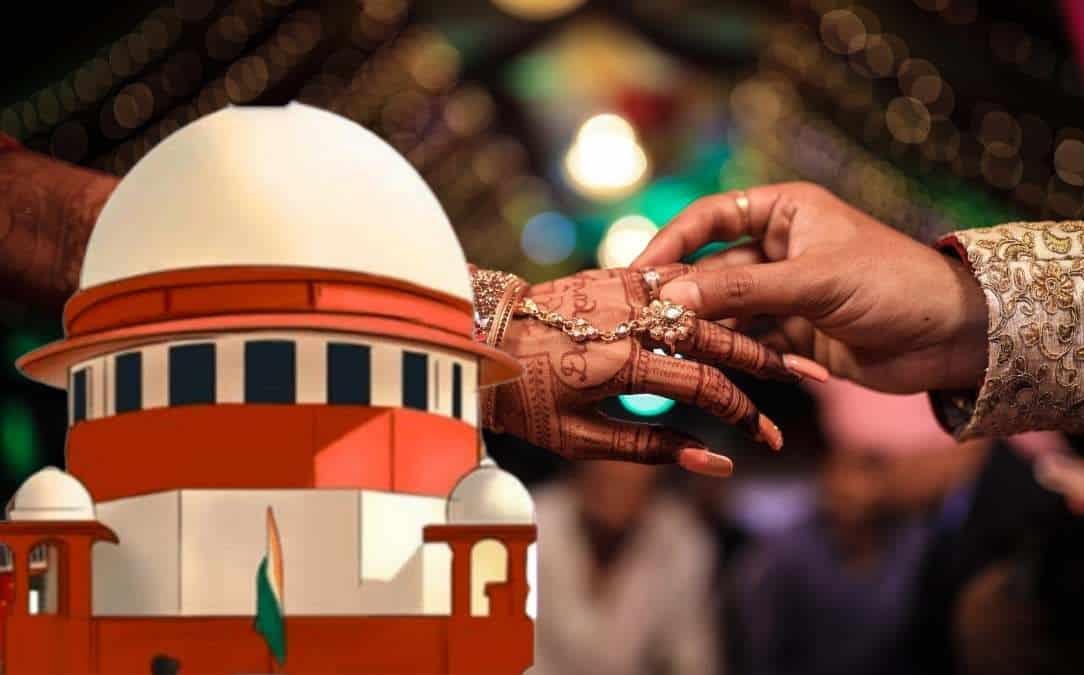The state cannot interfere and object to two consenting adults living together merely because they belong to different religions, the Supreme Court asserted while granting bail to a Muslim man jailed for nearly six months after marrying a Hindu woman. The Hindustan Times had first carried the report.
On May 19, a bench of Justices BV Nagarathna and Satish Chandra Sharma passed the order even as it allowed an appeal filed by a man, who was denied bail by the Uttarakhand High Court in February 2025. The petitioner was arrested under provisions of the Uttarakhand Freedom of Religion Act, 2018 and the Bharatiya Nyaya Sanhita, 2023, for allegedly concealing his religious identity and fraudulently marrying the woman under Hindu rites.
In the order, the Supreme Court said: “The respondent-state cannot have any objection to the appellant and his wife residing together inasmuch as they have been married as per the wishes of their respective parents and families.” The bench further clarified that the ongoing criminal proceedings would not come in the way of the couple living together by choice.
The court further directed the petitioner’s release on bail, noting that he had been incarcerated for nearly six months and that a charge sheet had already been filed. “Considering the facts on record, in our view, the case for bail is made out,” said the bench. The SC also took note of the argument made by the senior counsel for the petitioner, who contended that the FIR was lodged only after certain individuals and organisations objected to the interfaith marriage. It was pointed out that the wedding took place with the full knowledge and presence of both families, and that Siddiqui provided an affidavit the day after the marriage affirming he would not force his wife to convert and that she would be free to follow her faith.
The Supreme Court also made it clear in their order that during “the pendency of the criminal proceeding against the man,” he and his wife would be free to reside together if they did so “on their own volition.”
This incident is the latest in a long line of incidents where personal relationships have been politicised by the far right, with Uttarakhand being among the most regressive states on this issue.
The FIR in this case was lodged on December 12, 2024, at Rudrapur Police Station in Uttarakhand’s Udham Singh Nagar district, just two days after the couple’s wedding on December 10. The Uttarakhand High Court, had, in February this year, declined to grant Siddiqui bail, holding that facts relating to his religion had allegedly not been disclosed to the woman and her family before the marriage. In its February 28 order rejecting bail, the High Court accepted the prosecution’s argument that the man’s religious identity was deliberately concealed. The High Court observed that while the wedding was solemnised under Hindu customs, and the applicant and his family failed to reveal their Muslim identity until after the marriage.
The complaint was reportedly lodged by a cousin of the woman, alleging that the family discovered the groom’s religious background only upon visiting his residence in Delhi, where they noticed that “most of the people belonged to a different community.” The FIR was filed the very next day, despite an affidavit submitted by Siddiqui on December 11 assuring that he would not pressure his wife into converting and would respect her religious autonomy.
While Siddiqui’s counsel highlighted that his own mother is a practising Hindu and that he grew up in a Hindu environment, the Uttarakhand High Court remained unconvinced. It noted that the couple did not marry under the Special Marriage Act, which governs interfaith unions in India, and that key facts were allegedly kept from the woman’s family, pointing to the affidavit as evidence that “correct facts had not been disclosed.” Rejecting the defence that the information was known to both sides, the High Court concluded, “The applicant does not deserve bail.” This order by a constitutional court raises questions on the issue of constitutional rights and liberty.
In contrast, the Supreme Court viewed the matter through the lens of personal liberty and marital autonomy, reiterating that the right of adult individuals to live together cannot be curtailed by the state on the ground of religious difference. “This is an appropriate case where the relief of bail ought to be granted,” held the bench, noting the petitioner’s submissions that the couple may choose to live separately from their families and continue to live peacefully without any hindrance.
The Order of the Supreme Court may be read here.
Related:

